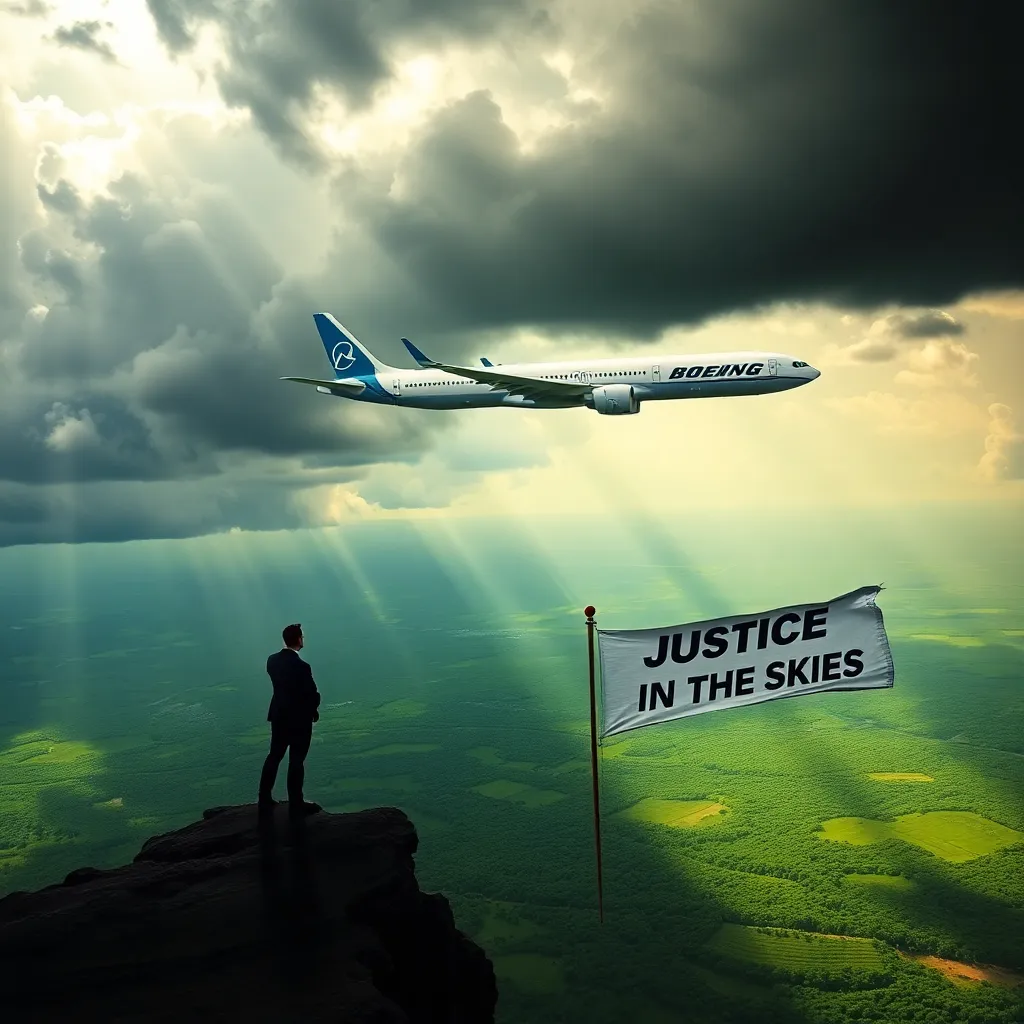Boeing’s $6 Billion Blues: Navigating Turbulent Skies
Seattle, USA
In a world where airplanes are as common as pigeons in the park, Boeing finds itself at a perilous crossroads, facing a staggering loss of approximately $6 billion. The company’s CEO, embracing a mix of existential dread and corporate jargon, declared that Boeing is at a “crossroads.” While the aviation giant grapples with its financial turbulence, the world outside is buzzing with discussions about reparatory justice and environmental protection. Could this be the ultimate recipe for absurdity?
The Sky is Falling!
Boeing’s recent financial report reads like a tragicomedy. As losses surge, the company is left pondering whether they should start selling lemonade on the corner or perhaps pivot to making paper airplanes. “If only we could fly ourselves out of this mess!” sighed the CEO during a press conference, clearly channeling a blend of desperation and humor.
A Crossroads of Choices
The dilemma is stark: continue producing aircraft that spew jet fuel into the atmosphere, or shift gears and focus on sustainability. The CEO stated, “We could either invest in electric planes or pivot to artisanal, eco-friendly paper airplanes that come in biodegradable packaging. It’s a tough choice!”
Meanwhile, environmental ministers are chiming in, declaring that the move to protect children’s health involves less pollution from aviation. “We can’t have kids inhaling jet fuel while trying to enjoy their chocolate chip cookies!” said an enthusiastic minister, sporting a green tie and an even greener worldview.
Reparations in the Air?
As Boeing wrestles with its identity crisis, global leaders are simultaneously preparing to examine reparatory justice for the transatlantic slave trade. This historical and moral reckoning is shaking the foundations of society while Boeing fumbles around with its $6 billion blues.
Imagine a world where Boeing’s CEO is asked to reflect on reparations. “We could offer free flights to those affected by historical injustices!” he mused, envisioning a PR campaign that combines reparations with frequent flyer miles. “Fly for free, but only if you can prove you’re a descendant of someone who was affected by the transatlantic slave trade!”
The Intersection of Flight and Justice
Historically, the aviation industry has not been a bastion of social justice. If reparations were to take flight, would Boeing offer a discount for those with family ties to the oppressed? Perhaps a new slogan could emerge: “Boeing: Smoothing the Skies for Justice!”
A Spiraling Cycle of Confusion
As if this wasn’t enough, let’s throw in a dash of geopolitical tension. Following a recent attack in Turkey blamed on Kurdish rebels, the world is spinning like a top. Amidst strikes and rising tensions, the aviation sector is struggling to maintain its composure. “Can’t we just build a giant jet that can both fly and negotiate peace?” a bewildered engineer suggested, half-joking.
The Unlikely Alliance
In a bizarre twist of fate, one can envision an alliance between the environmental ministers and Boeing’s leadership. “Let’s save the planet and make amends for our past!” they might declare, as they brainstorm new aircraft designs that also act as mobile reparations offices. Who wouldn’t want to board a plane outfitted with a legal team ready to discuss reparatory justice mid-flight?
Future Flights of Fancy
As the discussions of reparations and environmental concerns swirl around Boeing’s boardroom like a flock of confused seagulls, the future remains uncertain. What if we could harness this chaotic energy for innovation?
Imagine if Boeing launched a new line of aircraft dubbed the “Reparation Express,” where every ticket sold contributes to a fund for those historically affected by injustices. Passengers could enjoy in-flight entertainment featuring documentaries on social justice while sipping on organic, fair-trade coffee.
A New Era of Corporate Responsibility
This could set a precedent for corporate responsibility: environmental sustainability paired with social justice. As the CEO quipped, “If we can’t make money, at least let’s make history!” In such a world, every flight would not just take you from point A to point B but also help heal the wounds of the past.
Conclusion: Flying into the Sunset
As Boeing tries to navigate through its financial storm, the company stands at a peculiar intersection of aviation, environmentalism, and social justice. The skies ahead are uncertain, but one thing is clear: the future of flying might just involve a dash of humor, a sprinkle of reparations, and a serious commitment to protecting planet Earth.
So, buckle up, folks. The next chapter in aviation history is bound to be a wild ride, filled with unexpected twists, reparatory turbulence, and perhaps, just perhaps, a greener future for all. Who knew that $6 billion in losses could lead to such a whimsical exploration of justice and environmental stewardship?
